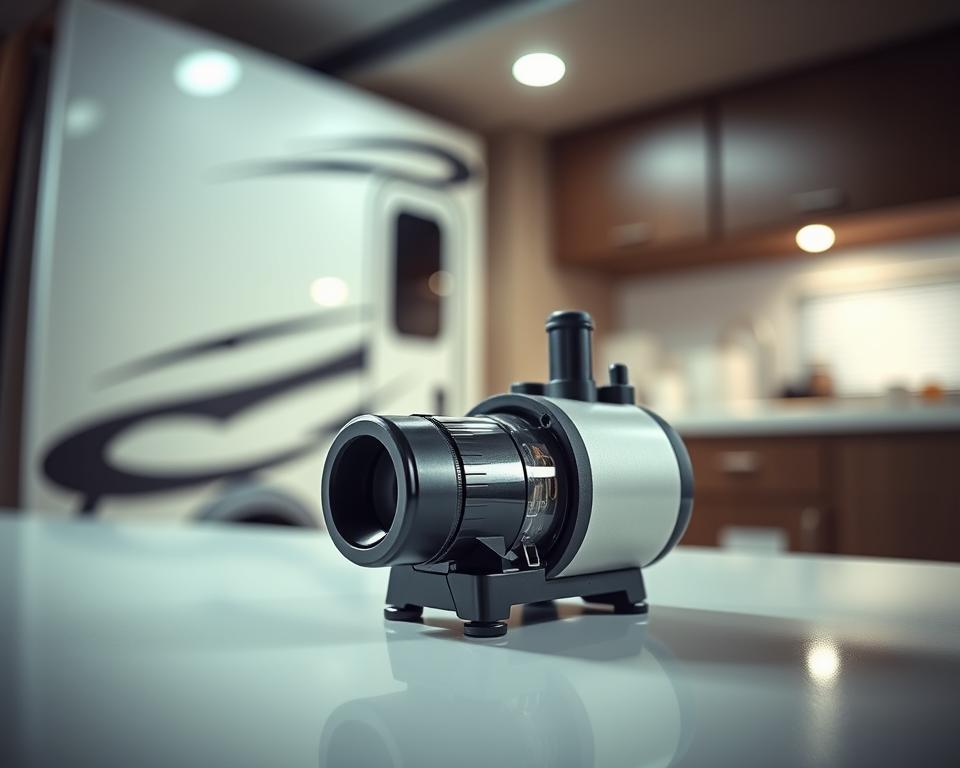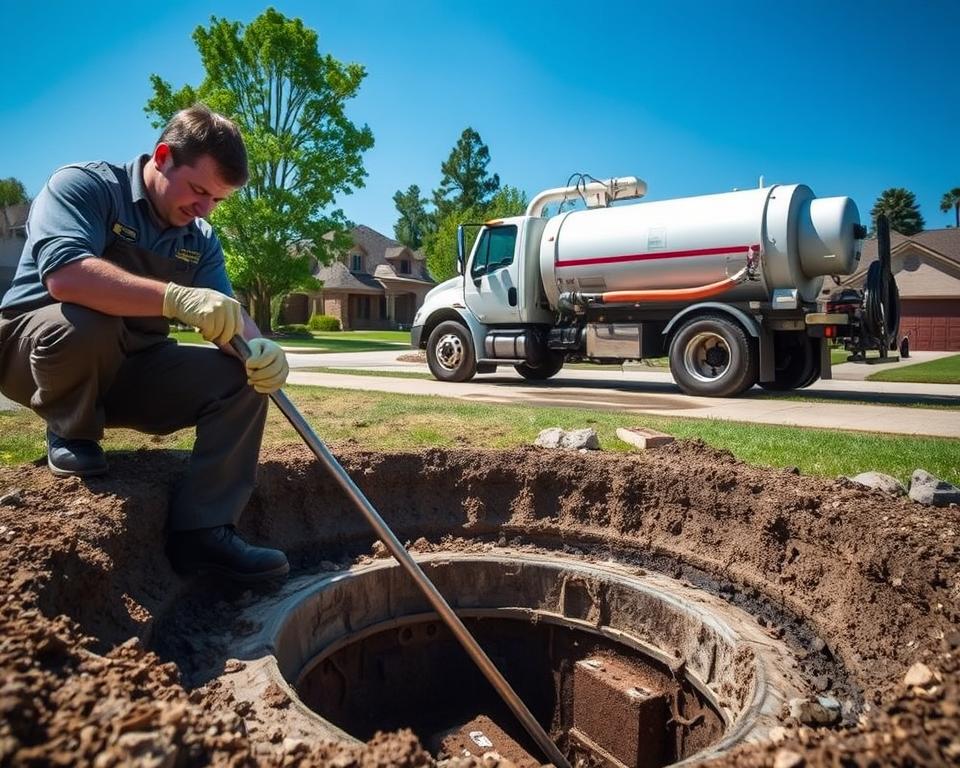Travel Trailer Septic Tank Pumping: Comprehensive Guide
Ignoring a camper septic system can speedily turn an costly mistake. For those owning RVs and mobile units, it’s vital to recognize the importance of RV septic Tank Pumping. It maintains your travels are smooth and living conditions remain sanitary while on the move. By stressing regular RV tank pumping service, this manual is designed to make you proactive in caring for your septic system, preventing potential headaches – especially when enjoying the great outdoors.
In this article, a deep dive into finding reliable mobile septic services is laid out. Plus, we cover how to identify when your septic Tank demands prompt attention. Mastering the process for efficient RV septic Tank Pumping completes the picture. Instead of reacting to issues as they occur, allow this guide to equip you with must-have knowledge. This helps guarantee your RV experiences stay stress-free!
The Value of Scheduled Trailer Septic Tank Pumping
Timely maintenance of your RV’s septic Tank is crucial for its wastewater system’s effectiveness. Delaying this can result in clogs and backups, wrecking your vacation and damaging the environment. Sewage leaks from an overloaded Tank can taint the area, creating major hazards.
Hiring professional Pumping services like All in Sanitation is a smart move for RV owners. This decision heads off issues and improves your system’s functionality and longevity. Proper Pump-outs mean a fresher, safer environment in RV parks and campgrounds.
Understanding Your RV’s Septic System
A motorhome septic system consists of three primary elements: the black water Tank, grey water Tank, and fresh water Tank. For RV owners, it’s important to know these parts. They are fundamental in waste management. The black water Tank holds toilet sewage, and the grey water Tank retains water from sinks and showers.
Each Tank has a distinct role in maintaining the trailer clean and operational. Tracking the levels in the black water and grey water Tanks is vital. It wards off overflows, bad smells, and damage to the septic system.
For a clearer understanding, below is a table that compares differences between the black water and grey water Tanks:
| Feature | Black Water Tank | Grey Water Tank |
|---|---|---|
| Purpose | Holds sewage waste | Collects wastewater from sinks and showers |
| Maintenance Frequency | Requires frequent Pumping | Needs occasional emptying |
| Potential Issues | Odors, blockages from solids | Risk of grease buildup |
| Typical Size | Generally bigger than grey water Tank | Smaller than black water Tank typically |
Grasping your RV’s septic system is foundational for maintenance. It secures smooth travel experiences. Managing both Tanks translates to trips with minimal septic concerns.

Red Flags Your Septic Tank Needs Pumping
It’s critical to notice when your septic Tank needs Pumping to preserve your system efficient. Detecting issues early can prevent major repairs and environmental harm. Common signs that demand attention include:
- Slow draining sinks, which may point to a full Tank or clog.
- Gurgling toilets, hinting at blocked pipes or a failing septic system.
- Foul odors around your RV, an early warning of rising sewage.
- Pooling water near the drain field, showing that your Tank may be overwhelmed.
- Sewage backups in your toilets or drains, a sure sign urgent action is needed.
Being mindful of these signs enables RV owners to take quick action, heading off grave issues. Observing your system and addressing to these indicators can extend your septic system’s lifespan. This approach ensures a smoother RV experience.
Factors Affecting Pumping Frequency
A septic Tank’s size largely influences how often it demands Pumping. Larger Tanks require less frequent service because they store more waste, whereas smaller Tanks call for more regular Pumping.
The number of RVs using the septic system also impacts Pumping frequency. With more RVs, the system experiences increased strain, necessitating quicker Pumping. Notably through peak seasons, tweaking the schedule is key to avoid problems.
Here is a table that summarizes recommended Pumping intervals based on typical scenarios:
| Septic Tank Size | Number of RVs | Recommended Pumping Frequency |
|---|---|---|
| 500 gallons | 1-2 RVs | Roughly every 2-3 years |
| 1000 gallons | 2-4 RVs | Roughly 3-5 years |
| 1500 gallons | 4+ RVs | Every 1-2 years |
Correctly setting your septic Tank’s Pumping frequency optimizes its operation. It also prolongs its life and effectiveness. This selection is vital for maintaining system health.
How to Choose a Dependable Septic Pumping Service
Selecting a solid septic Pumping service is vital for your RV’s septic system health. It guarantees prompt and efficient Pumping, averting pricey future repairs. When looking for a septic service provider, consider these important aspects:
- Experience: Find companies with a proven track record. Their hands-on know-how with various septic systems, especially those for trailers, is paramount.
- Customer Reviews: Check online reviews and testimonials. Positive feedback and strong ratings are markers of a dependable provider.
- Response Time: Rapid response times signal a company’s commitment to their customers and readiness to meet their needs efficiently.
- Knowledge of Systems: Specialized knowledge of trailer septic systems differentiates some services. Providers like All-In Sanitation understand these systems well, enabling customized service.
Focus on these considerations to find the most suitable service for your septic requirements. A reliable septic Pumping service boosts your system’s life and performance, enabling carefree travel adventures.
RV Septic Tank Pumping: What Happens
Trailer septic Tank Pumping requires critical steps for efficiency and safety. It’s crucial for RV owners to know this process before service appointments.
A technician with a trailer-mounted Pump comes first, tailored to mobile systems. This technology enables effective waste removal while preserving the environment. They couple the Pump to the rig’s system with a hose reaching the Tank.
The Pump then extracts the waste out of the Tank. This action is vital to preserve the septic system sound and avoid overflow. After emptying, the technician examines the Tank for damage or wear, confirming proper function.
Following the Pump-out, waste disposal is the next step. The hauled waste is transported to treatment facilities for safe processing. This step minimizes environmental harm.
The process benefits from the trailer-mounted Pump’s speed. Scheduled service reduces time and cost, holding the septic system in optimal condition.
24/7 Septic Pumping Services
Sudden issues with your septic system can call for immediate intervention. For RV enthusiasts, recognizing when to get emergency septic Pumping is critical to avert further damage and exorbitant costs. Situations needing immediate septic Tank Pumping include backups, unpleasant smells, and sewage leaks. Quickly addressing these issues often requires septic Tank Pump and haul services to efficiently eliminate waste and regain system functionality.
Providers like All-In Sanitation offer 24/7 emergency septic Pumping, ensuring help is always available in a pinch. Acting fast with these services markedly enhances your septic system’s lifespan and performance. Having a trusted septic service readily accessible can mitigate expenses and stress in emergencies, delivering uninterrupted enjoyment of RV adventures.
Smart Moves for Looking After Your Trailer Septic System
Keeping your camper’s septic system in excellent shape is critical. Proper maintenance strategies can sidestep expensive problems later. Start with regular checks for damage, leaks, or strange smells for RV septic Tank care.
Proper waste disposal is fundamental for a healthy system. Don’t flush items that won’t break down, and stick to septic-friendly products. It’s essential that everyone knows how their actions affect the septic system. This guarantees it remains functional and efficient.
- Conduct regular checks for leaks and unusual odors.
- Communicate regularly with your septic service provider for on-schedule maintenance.
- Utilize septic-safe toilet paper and cleaning supplies.
- Stop pouring chemicals down the drain that could damage the balance of bacteria in the Tank.
- Schedule for routine professional inspections to spot potential issues early.
Adopting these steps helps RV owners prolong their RV septic systems’ life and performance.
Usual Troubles with Trailer Septic Systems
Trailer septic systems often encounter hurdles that annoy RV owners. Address these issues early to sidestep bigger problems later. Clogs in septic Tanks are common, mainly due to not disposing of waste properly. To reduce clogs, choose RV-safe toilet paper and do regular maintenance.
Another key issue is odor control. Bad smells can indicate backups or leaks, requiring immediate action. To minimize odors, verify the system is well-ventilated and the septic Tank is emptied regularly.
Leaks can develop from wear or incorrect installations. Quick identification of leaks assists in avoiding environmental damage and maintains the system working. Periodic inspections are important to catch these issues early.
To get ahead of common issues, use preventative strategies like scheduled maintenance and proper waste disposal. Knowledgeable and proactive RV owners can enjoy their travels care-free and with peace of mind.
To Summarize
Getting a handle on RV septic Tank Pumping is vital for RV and camper owners. Scheduled maintenance and noticing trouble signs in your septic system can boost your RVing experience significantly. Managing your RV’s septic system well secures both safety and comfort during your outdoor adventures.
Opting for a dependable service for your camper’s septic Tank Pumping is critical. Hiring experts like All in Sanitation ensures your mobile waste management is top-notch. This approach is not just environmentally sound, but it also elevates* the camping experience, making it more enjoyable and sustainable.
Actively maintaining your septic system lowers emergencies, enhancing your nature stays. Thorough care and know-how allow memorable trips for the best reasons.


